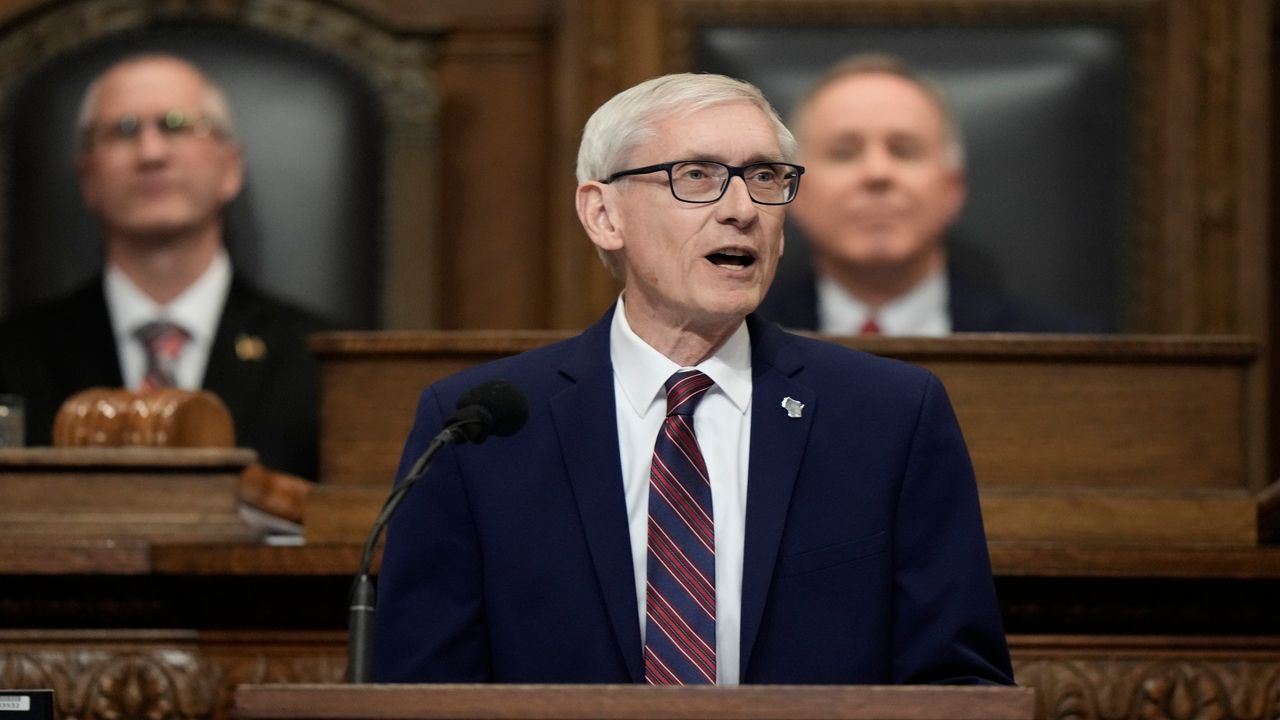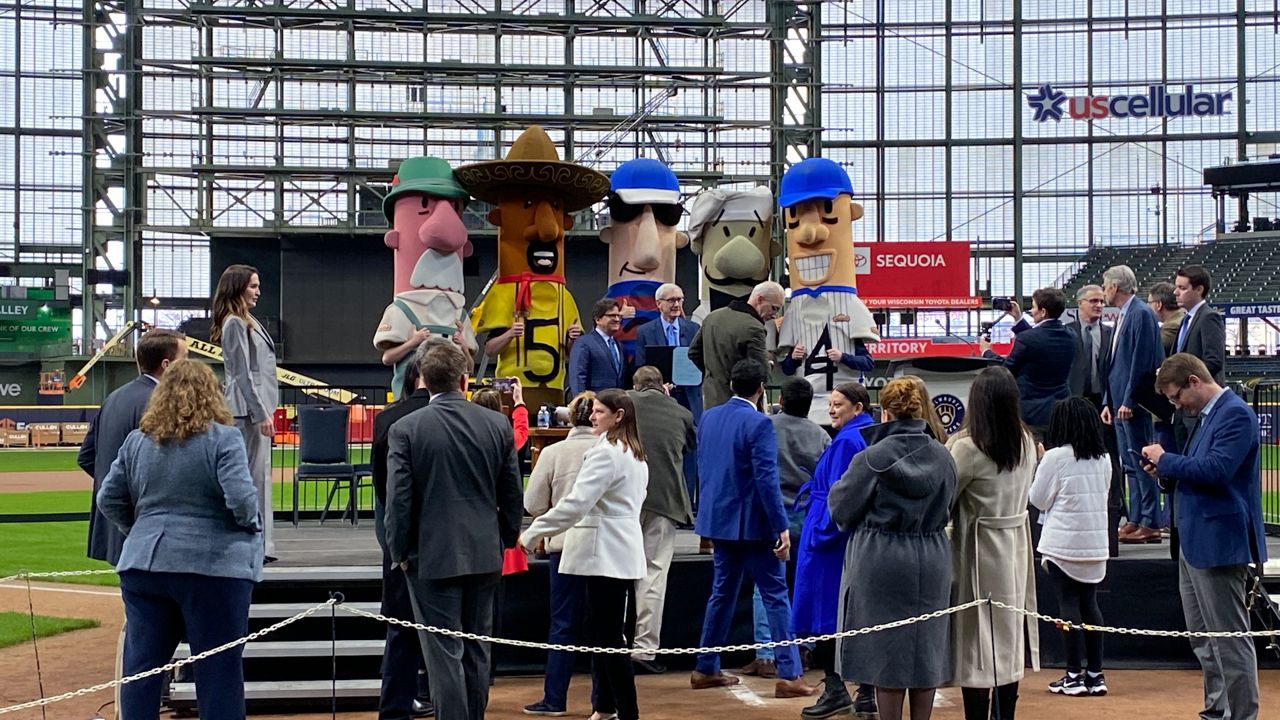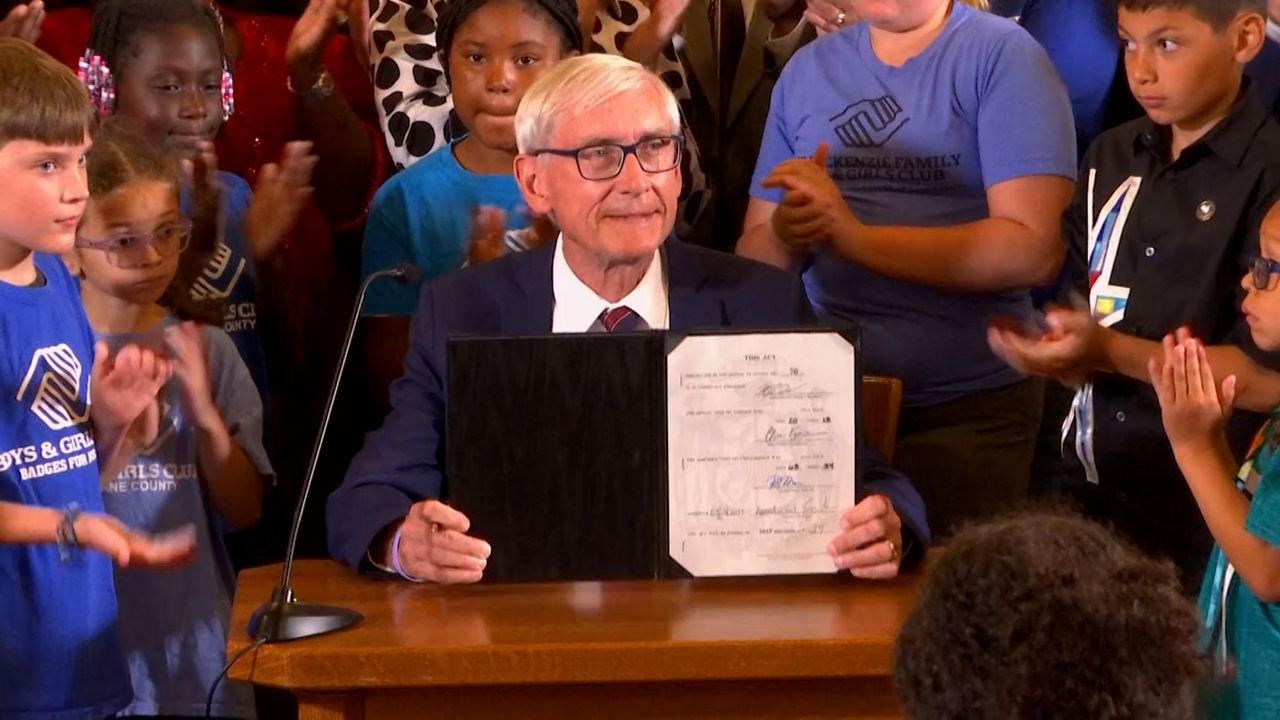MADISON, Wis. — Gov. Tony Evers said he still holds out hope for finding a way to better fund child care programs across Wisconsin. However, to get that deal done, it might take compromising with Republicans on tax cuts.
Spectrum News 1 Political Reporter Anthony DaBruzzi recently sat down with the governor for a one-on-one conversation ahead of his State of the State address later this month to find out what he wants to accomplish this year.
Though it’s a new year, Gov. Evers said he plans to mostly pick up where 2023 left off when it comes to his legislative to-do list. That includes finding a more long-term solution for Wisconsin’s child care industry, which Gov. Evers said could also help solve workforce woes.
“We spent a lot of time talking about child care and didn’t quite get that taken care of in the budget, so we used some federal money, but I think it's time to rethink that and have people actually think about what we can do about child care,” Gov. Evers said. “We just can't let it go, and it impacts our economy and impacts people's lives on a regular basis. And so, hopefully, we'll be able to have discussions with the Legislature on this and maybe get something done.”

Republican legislative leaders have said they plan to wrap up floor session as soon as the end of February or early March with it being an election year. Though remaining policy priorities would need to be accomplished sooner rather than later, Gov. Evers said he isn't too concerned about the timeline.
“I mean, if it has legs, we'll spend time talking about it,” Gov Evers added. “If there's just no interest in doing anything, maybe not. I know [Republicans] are interested in some tax relief around retirements and retirees and you know, maybe there's some possibilities with coupling that with child care. We’ll see.”
Anything passed by the Republican-controlled Legislature and signed into law by Gov. Evers is inherently bipartisan, but there were several significant packages last year that took extra time to reach across the aisle. Among them are shared revenue for local governments and funding for the Brewers stadium.
Gov. Evers said both parties simply make the most of those opportunities when they arise.

“Well, it’s not like we hang out together on a regular basis. But the fact of the matter is, I sign many more bills than I veto. You know, obviously, I will veto things that need to be vetoed, but at the end of the day, you know, you look at shared revenue, you look at broadband, you look at affordable housing, mental health for kids — all those things were passed. Maybe not at the level I wanted it, or maybe it wasn’t at a level that they wanted, but that happens,” Gov. Evers explained.
“I know the common thread is always well, Evers and Vos and LeMahieu, do they get together and work through these things? Occasionally, we do. Shared revenue is a good example. I think the Brewers stadium was a good example. But the fact of the matter is, we both have staff, and they are regularly communicating with each other and I'm out of this office on a regular basis. I find one of [the] most important things for me to do is figure out what's going on across the state of Wisconsin,” Gov. Evers continued.
When asked to narrow his list of the accomplishments he was most proud of in 2023, Evers said two especially rose to the top: The Brewers stadium deal and shared revenue.

“I was running for office for a year, it seemed like longer than that, but I talked about shared revenue three, four, or five times in a day, just to get people ready to think about how this should be handled once we get into the legislative session,” Gov. Evers said. “And so, it was a lot of work on that, and I think it was a great outcome. It wasn't perfect, but it was a great outcome.”



